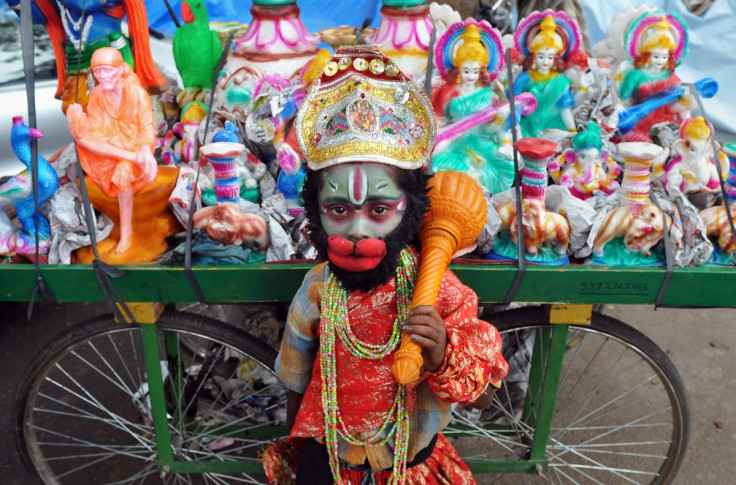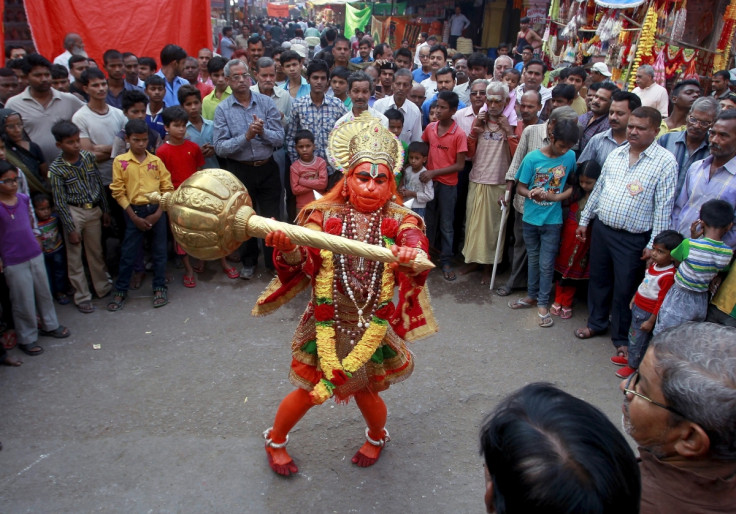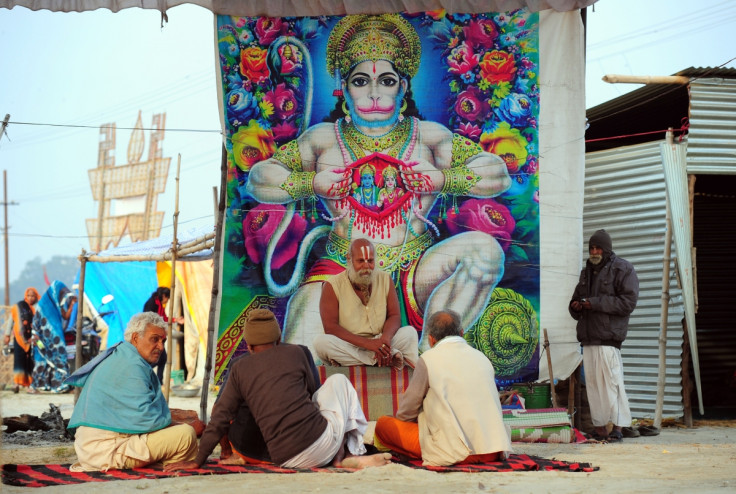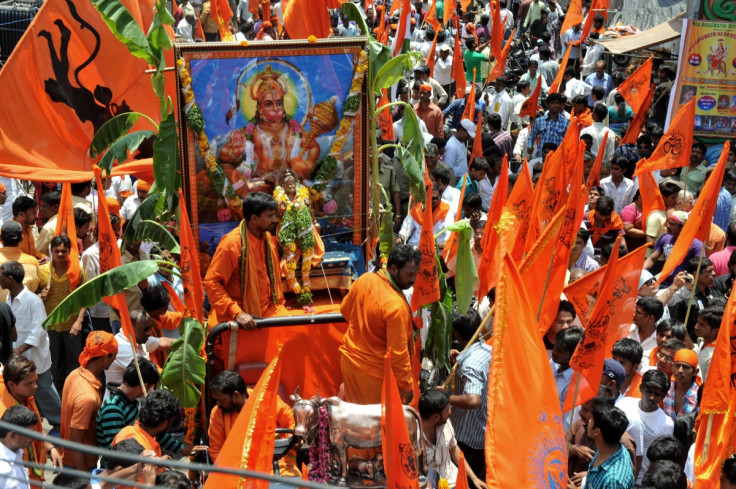Hanuman Jayanti 2016: Who is the Hindu monkey god and why do Indians celebrate him?

Hanuman Jayanti (birthday of Hanuman) is being celebrated across India today (22 April). The day marks a tribute to Hanuman Ji, the monkey god, who is a symbol of strength and energy for Hindus.
Hanuman is worshipped by many for his devotion to Lord Rama, who granted him everlasting life in thanks for his selfless dedication. Lord Rama promised Hanuman that he would be worshipped alongside him and that an idol of the monkey god would always be placed next to his.
The day is commemorated by Hindus across the globe, with even Indian Prime Minister Narendra Modi taking to Twitter to greet fellow devotees on the day. Some believe that worshiping Lord Hanuman through the proper rituals on Hanuman Jayanti will make all their wishes come true.
IBTimes UK rounds up everything you need to know about Hanuman Jayanti and India's monkey god.
Who is Lord Hanuman?
While some believe that Hanuman was born to the king and queen of the monkeys, others say he is the son of Anjana, a woman who was transformed into a money by a curse. Most associate him as being the son of Vayu, the wind god, and believe that his ability to fly came from Vayu.
Many consider Lord Hanuman to be the embodiment of Karma Yogi, which is based on the teachings of the sacred Hindu script, the Bhagavad Gita. Karma Yogi is the practice of doing good for the world, loving the world and all its beings, particularly displaying this through actions.

What are some of the most fascinating moments of Hanuman in Hindu mythology?
Lord Hanuman's mischievous childhood provided a number of interesting stories about the monkey god. One of the most popular stories about Lord Hanuman is about the time when he attempted to eat the Sun, mistaking it for a huge mango. During this episode, Hanuman clashed with Rahu, the Vedic planet associated with causing eclipses, and prevented Rahu from causing a scheduled eclipse.
The incident led to Hanuman finding himself in trouble with Indra, the king of the gods, who struck him with a thunderbolt (hanu) on the jaw, inspiring his name. However, the monkey god continued to misbehave throughout his childhood, prompting the gods to pray for a solution and then placing a curse on the young Hanuman that would cause him to forget his magical powers unless reminded by someone else.

How did Hanuman devote himself to Lord Rama?
Hanuman led the monkeys to help Lord Rama rescue his wife, Sita, when she was captured by the demon, Ravana, king of Lanka. It was during this time that Lord Hanuman was reminded of his flying powers by Jambavan, the king of the bears, and he used these powers to cross the strait between India and Lanka.
When captured in Lanka, Lord Hanuman had his tail set on fire, but was able to use this to burn down the entire region of Lanka. He is also known for having flown to the Himalayas and returning with a mountain of medicinal herbs to help revive Lord Rama's army when he was fighting to save Sita.
The BBC has cited Hanuman as once having said: "I am a humble messenger of Sri Rama. I have come here to serve Rama, to do His work. By the command of Lord Rama, I have come here. I am fearless by the grace of Lord Rama. I am not afraid of death. I welcome it if it comes while serving Lord Rama."

How is Hanuman Jayanti celebrated in India?
Hanuman Jayanti is an extremely popular festival among Hindus and can be celebrated individually or in a temple devoted to Hanuman. The sacred text of Hanuman Chalisa is usually recited on this day, which contains a set of prayers commemorating the monkey god and illustrating his past.
Devotees that recite the Hanuman Chalisa might choose to recite the text non-stop for a period of 24 hours, while others recite the prayers a specific number of times. Special pujas (prayer ceremonies) are also held and offerings are made to Lord Hanuman, with different devotees having altered rituals, such as sacred fire ceremonies at some temples.
In India, many line the streets in colourful processions while carrying idols of Lord Hanuman and wearing masks and tails to resemble the god. The celebrations are accompanied by a period of fasting, followed by a grand vegetarian feast.
© Copyright IBTimes 2025. All rights reserved.






















